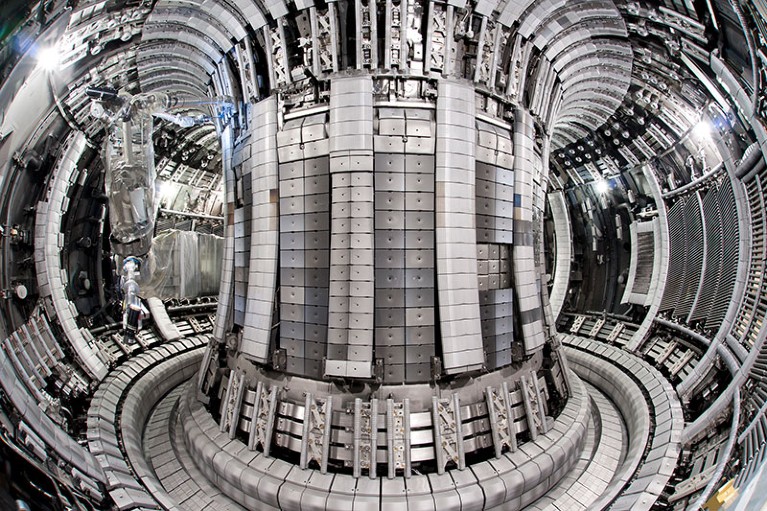The UK and US last week signed a partnership to advance the development and commercialisation of nuclear fusion technology. Andrew Bowie, the UK’s minister for nuclear and networks, met David Turk, the Biden administration’s deputy energy secretary in Washington to sign the agreement.
Under it, UK and US scientists will come together to address technical challenges and share nuclear fusion research and development facilities.
Nuclear fusion involves heating two light hydrogen nuclei to extreme temperatures, causing them to combine into a large nucleus that releases heat to generate electricity.
Fusion differs from the more conventional fission, where a heavy nucleus is split into two larger ones. Fusion is considered safer than than its forerunner, because fission produces big quantities of toxic, long-lasting nuclear waste needing great care in its handling. Waste concerns have triggered protests against nuclear power in the UK.
Bowie said: “International collaboration is key for advancing fusion and achieving our ambition of getting a commercial fusion reactor grid-ready by 2040. The UK and the US are world leaders in this technology, and pooling our resources will unlock new private sector investment.”
This is the first formal international fusion collaboration since the launch of the UK Government’s £650m ($794m) Fusion Futures Programme in October. The programme aims to train labour in the practice of fusion technology and accelerate the development of the industry.
In addition to this funding, the government previously allocated £700m to UK fusion energy programmes for the period 2022–25.
The fusion programme is part of the wider Great British Nuclear policy launched in March. Nuclear is thought to play an important role in the UK’s goal of sourcing 95% of its electricity from “low-carbon” sources. The government is aiming for 25% of the country’s energy to come from nuclear sources by 2050.
From the MAST-U tokamak in Oxfordshire to the DIII-D tokamak in California, American and British institutions have long collaborated on fusion research. The new partnership goes further and builds on the UK’s Fusion Strategy. It will:
- bring together scientists and engineers from the UK and US to address the technical challenges of delivering commercially viable fusion energy
- allow shared access for facilities and stimulate new R&D opportunities
- standardise international regulatory frameworks and codes of practice
- develop resilient supply chains for fusion materials to support the industry long-term promote skills development for a robust talent pool in the coming decade




